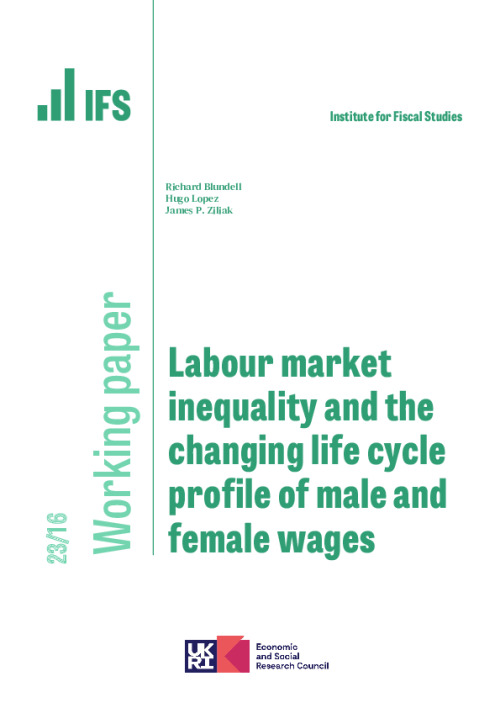We estimate the distribution of life cycle wages for cohorts of prime-age men and women in the US. A quantile selection model is used to consistently recover the full distribution of wages accounting for systematic differences in employment, permitting us to construct gender- and education-specific age-wage profiles, as well as measures of life cycle inequality within- and between-education groups and gender. Although common within-group time effects are shown to be a key driver of labor market inequalities, important additional differences by birth cohort emerge with older cohorts of higher educated men partly protected from the lower skill prices of the 1970s. The gender wage gap is found to increase sharply across the distribution in the first half of working life, coinciding with fertility cycles of women. After age 40, there has been substantial gender wage convergence in recent cohorts relative to those born prior to the 1950s.
Authors

CPP Co-Director
Richard is Co-Director of the Centre for the Microeconomic Analysis of Public Policy (CPP) and Senior Research Fellow at IFS.

Research Fellow University of Kentucky
James is a Research Fellow at the IFS and a Professor of Economics at University of Kentucky.
October to November 2024
University of Chicago
Working Paper details
- DOI
- 10.1920/wp.ifs.2023.1623
- Publisher
- Institute for Fiscal Studies
Suggested citation
R, Blundell and H, Lopez and J, Ziliak. (2023). Labour market inequality and the changing life cycle profile of male and female wages. 23/16. London: Institute for Fiscal Studies. Available at: https://ifs.org.uk/publications/labour-market-inequality-and-changing-life-cycle-profile-male-and-female-wages (accessed: 30 June 2024).
More from IFS
Understand this issue

If you can’t see it, you can’t be it: role models influence female junior doctors’ choice of medical specialty
24 April 2024

Sure Start achieved its aims, then we threw it away
15 April 2024

Election Special: Is there a 'conspiracy of silence' between both parties?
6 June 2024
Policy analysis

How do the last five years measure up on levelling up?
19 June 2024

Free breakfast clubs in schools: what Labour’s plans would mean for pupils and families
25 June 2024

How should we interpret parties’ public spending pledges this election?
23 June 2024
Academic research

The impact of labour demand shocks when occupational labour supplies are heterogeneous
28 June 2024

Income inequality in Ireland, 1987–2019
28 June 2024

Components of the evolution of income inequality in Sweden, 1990–2021
28 June 2024
